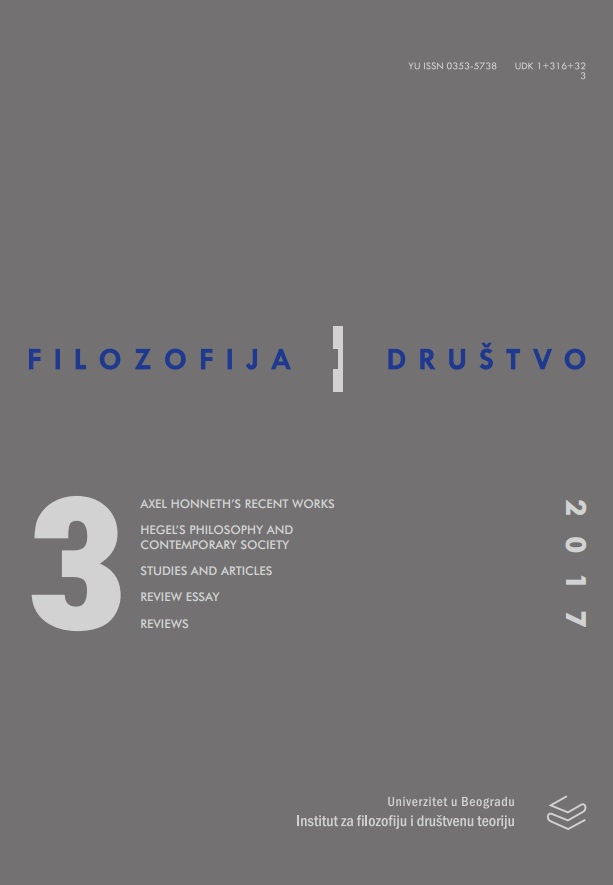The Contstructivistic Defence of the Objectivity of Moral Standards and Natural Law that Does not Require the Debate on Moral Realism
The Contstructivistic Defence of the Objectivity of Moral Standards and Natural Law that Does not Require the Debate on Moral Realism
Author(s): Slavenko ŠljukićSubject(s): Ethics / Practical Philosophy, Political Philosophy
Published by: Institut za filozofiju i društvenu teoriju
Keywords: constructivism; objectivity; Hume; Kant; moral standards; theory of justice
Summary/Abstract: The main goal of Kenneth R. Westphal’s How Hume and Kant Reconstruct Natural Law: Justifying Strict Objectivity without Debating Moral Realism is to defend the objectivity of moral standards and natural law and thus avoid the discussion about moral realism and its alternatives by interpreting Hume and Kant in a constructivistic sense. The reason behind the author’s disagreement with both: moral realism and non-realism (its alternative) is our inability to properly understand and answer one of the two parts in Socrates’ question to Euthyphro: “Is the pious loved by the gods because it is pious, or is it pious because it is loved?“ Moral realists cannot provide an answer to its second part, since it is not possible to prove that moral standards are not artificial; conversely, moral non-realists cannot provide an answer to its first part, since it is not possible to avoid the relatitvity of moral standards. The author tends to solve this problem by avoiding the confrontation between moral realism and non-realism and thus choosing the constuctivistic stance that, as he argues, can be found in both Hume’s and Kant’s theories. The main point of this stance is that moral standards are indeed artificial, yet not arbitrary. He proves this by pointing out that both Hume and Kant treat the moral standards as a social fact (that is, artificial), but also as objective. Westphal points out that Hume explicitly writes about moral standards as a social fact, while showing that, at the same time, his theory of justice, which precedes all of the moral standards, is established independently of his theory of moral sentiments (potentially leading to moral relativism). In this manner, he provides the objectivity of those standards. On the other hand, Kant’s theory is interpreted as advanced, yet similar to Hume’s in its structure. The crucial similarity is that both Hume and Kant interpret the moral standards as a social fact (that is, as an artificial) and, at the same time, as the objective ones. Kant, unlike Hume, provides this objectivity by using a specific moral criterion – a categorical imperative. Those assumptions will be used as the main premises of a distinctively inspiring interpretation of Hume’s and Kant’s theories of justice.
Journal: Filozofija i društvo
- Issue Year: 28/2017
- Issue No: 3
- Page Range: 653-663
- Page Count: 11
- Language: English

